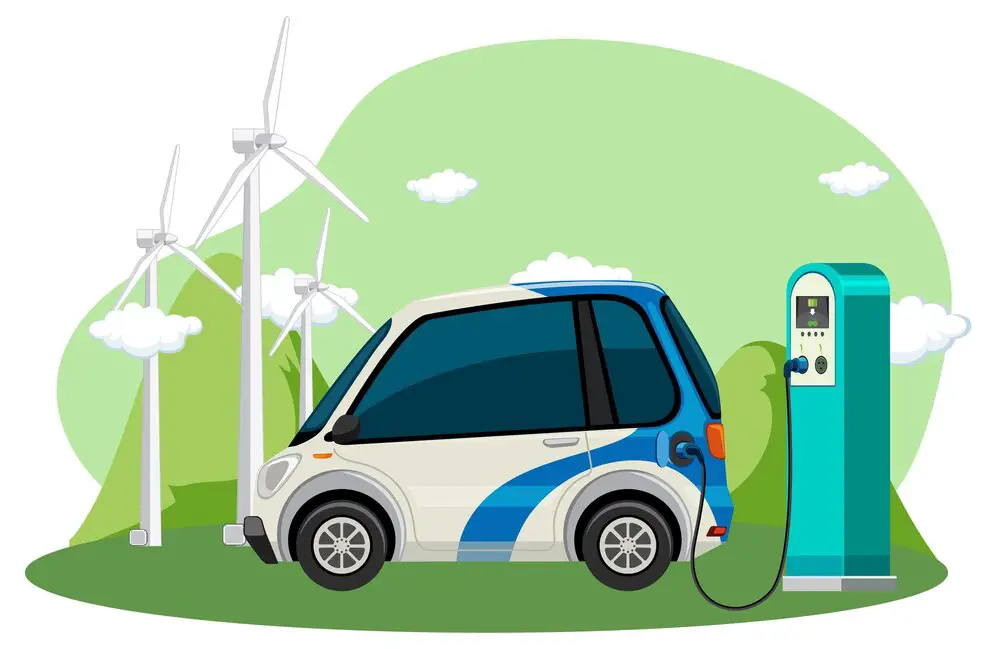Electric cars (EVs) are no longer a futuristic concept; they are here, and they’re redefining the way we move. This article delves into the benefits, the tech behind them, and why they are pivotal for a sustainable future. Let’s take a closer look at what makes electric cars the buzzword in today’s automotive industry.

What Are Electric Cars?
Electric cars, also known as electric vehicles (EVs), are automobiles powered entirely or partially by electricity. Unlike traditional internal combustion engine (ICE) vehicles that rely on gasoline or diesel, EVs use electric motors and batteries. There are three main types of electric cars:
- Battery Electric Vehicles (BEVs): Fully electric with no gasoline engine, BEVs rely solely on rechargeable batteries.
- Plug-in Hybrid Electric Vehicles (PHEVs): Combine a gasoline engine with an electric motor and rechargeable battery, offering flexibility for longer trips.
- Hybrid Electric Vehicles (HEVs): Use both an electric motor and a gasoline engine but do not plug in to recharge. They generate electric power through regenerative braking and the internal combustion engine.
The Technology Behind Electric Cars
Electric cars operate using an electric motor that converts electrical energy stored in batteries into mechanical energy. Here’s a simplified breakdown of the core components:
- Battery Pack: The heart of the EV, it stores the electrical energy needed to power the vehicle.
- Electric Motor: Converts electrical energy into mechanical power to drive the wheels.
- Inverter: Converts direct current (DC) from the battery to alternating current (AC) for the electric motor.
- Charging Port: Allows the vehicle to connect to an external power supply for recharging.
Advantages of Electric Cars
Switching to an electric car comes with a host of benefits that extend beyond just reducing your carbon footprint. Here’s why you should consider going electric:
Environmental Benefits
- Zero Emissions: EVs produce no tailpipe emissions, reducing air pollution and greenhouse gases.
- Energy Efficiency: Electric motors are more efficient than internal combustion engines, converting more energy from the battery to the wheels.
Economic Benefits
- Lower Operating Costs: Electricity is cheaper than gasoline, and EVs require less maintenance (no oil changes, fewer moving parts).
- Incentives and Rebates: Many governments offer financial incentives to encourage EV adoption, including tax credits and rebates.
Performance Benefits
- Instant Torque: Electric motors provide instant torque, resulting in smooth and quick acceleration.
- Quiet Operation: EVs are quieter than traditional vehicles, providing a more pleasant driving experience.
Challenges Facing Electric Cars
While EVs offer numerous advantages, they also face some challenges:
- Charging Infrastructure: The availability of charging stations is still growing, which can be a concern for long-distance travel.
- Battery Life and Range: Battery technology is improving, but range anxiety (fear of running out of power) remains a concern for many potential buyers.
- Initial Cost: EVs can be more expensive upfront than their gasoline counterparts, although this gap is narrowing with advancements in technology and increased production.
The Future of Electric Cars
The future of transportation is undeniably electric. With rapid advancements in battery technology, increased investment in charging infrastructure, and growing environmental awareness, the shift towards electric vehicles is accelerating. Here are some trends to watch:
- Extended Range: New battery technologies promise longer ranges and faster charging times.
- Autonomous Driving: Many EVs are at the forefront of self-driving technology, integrating advanced driver-assistance systems.
- Sustainable Manufacturing: Automakers are adopting greener manufacturing processes, further reducing the environmental impact of EV production.
FAQs
Q: How long does it take to charge an electric car?
A: Charging times vary based on the charger type. A standard home charger (Level 2) can fully charge a vehicle overnight, while fast chargers (Level 3) can charge up to 80% in 30 minutes.
Q: Are electric cars more expensive to maintain?
A: Generally, no. Electric cars have fewer moving parts and don’t require oil changes, making them cheaper to maintain in the long run.
Q: What happens if an electric car runs out of charge?
A: Just like running out of gas, the car will stop. However, many EVs have alerts and range estimations to prevent this, and roadside assistance services are available for recharging.







